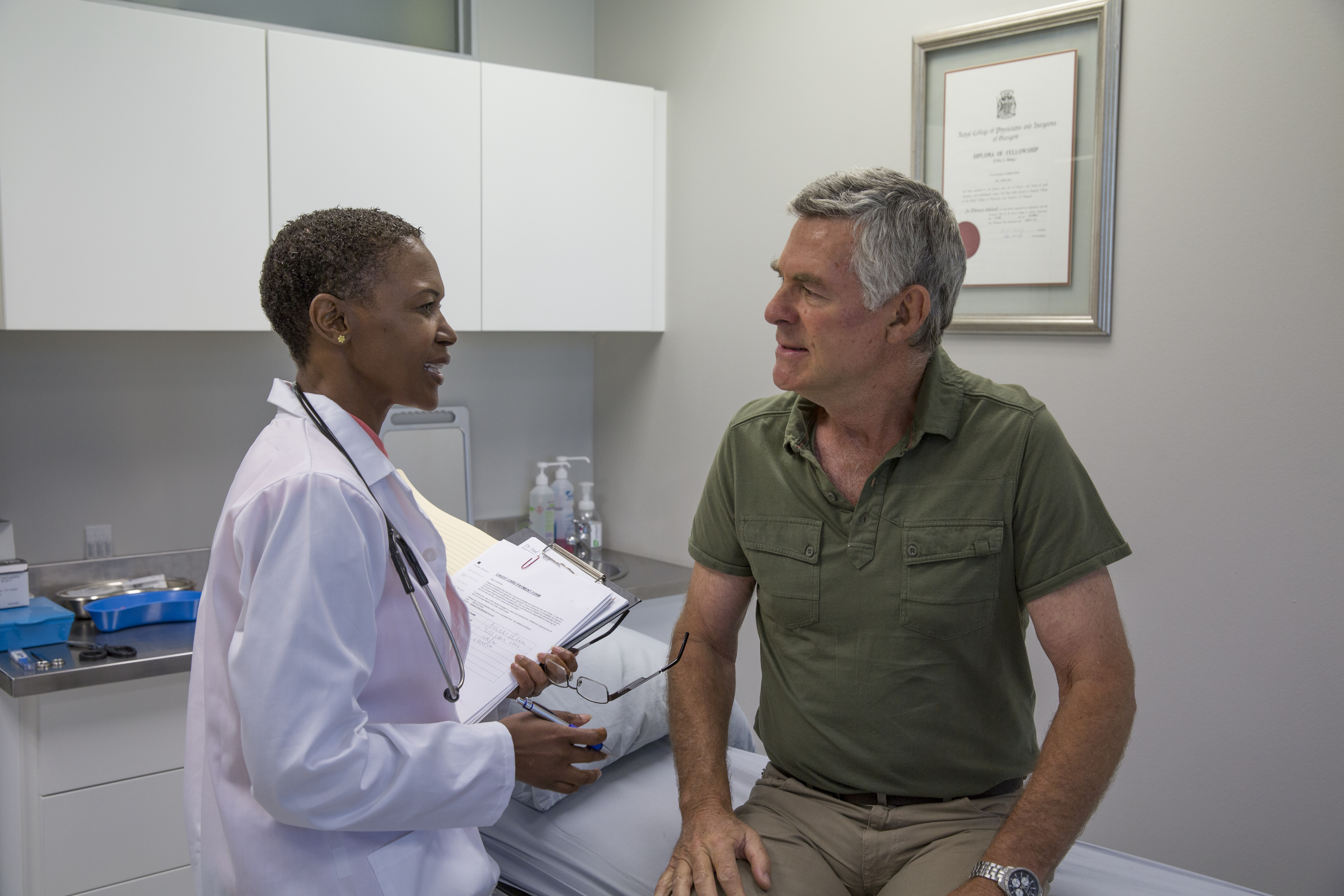Our commitment
Welcome to our Policy Centre where Janssen advocates for policies that prioritize patient accessibility to transformative medical innovations. We believe that every individual should have access to innovative medicines, empowering them to achieve better health outcomes and contributing to the resilience of societies as a whole. Through our commitment, we strive to drive advancements in healthcare that improve patient outcomes and foster a more inclusive and sustainable future.
“Having a future-proof regulatory framework plays such an important role in the research and development of next-generation treatments. We must understand both the implications and opportunities it presents.”[1]
Anouk De Vroey
Head Government Affairs & Policy at Johnson & Johnson EMEA, pharma & vaccines
Our positions

European Health Data Space
Johnson & Johnson welcomes the European Health Data Space (EHDS)[2] proposal and recognizes the importance of cost-effective industry access to health data in improving healthcare delivery. We suggest expanding the legitimate secondary uses of health data, including real-world evidence for decision-making. Ensuring fair competition and protecting the existing regime for intellectual property rights, trade secrets, and transparency obligations is crucial. Therefore, Johnson & Johnson emphasizes the need for harmonized approaches to data access requests, streamlining the process while fostering trust through federated data networks.
To facilitate implementation, Johnson & Johnson recommends revising the EHDS proposal's definitions to ensure clarity and alignment with other relevant legislation. We believe this will create a cohesive framework for data sharing across the healthcare ecosystem within all EU countries. Cross-border data transfer is vital for scientific advances and Europe's global competitiveness. Johnson & Johnson advocates for a framework enabling seamless and secure health data transfer while maintaining strict privacy and security standards. To address diverse stakeholder needs, the EHDS Board's composition should include representatives from all stakeholders. Johnson & Johnson's stance aims to innovate through health data, preserve IP property and trade secrets, safeguard privacy, and enhance the effectiveness of the EHDS.
Oncology
We are committed to advancing oncology treatments to improve patient outcomes. Our policy position focuses on creating an enabling environment for oncology research and development. We advocate for streamlined regulatory processes, robust intellectual property protection, and incentives that support the early-stage and targeted therapies vital to combating cancer. We strongly support increased funding for cancer research and believe in fostering collaborative partnerships between industry, academia, and healthcare stakeholders to accelerate the discovery and development of innovative cancer treatments. Central to our policy is ensuring timely patient access to these therapies, addressing affordability challenges, and promoting personalized and precision medicine approaches.

Value-based healthcare
Value-based healthcare focuses on maximizing patient health outcomes through quality care and valuable interventions, enabling effective targeting of investments and promoting healthcare sustainability. We believe key measures to advance value-based healthcare include EU-wide Joint Clinical Assessments, improved alignment of data requirements, and innovative funding models. Access hurdles, such as delays in patient access to innovative medicines, should be addressed through these measures. Janssen supports value-based healthcare as a means to sustain and improve health outcomes for all patients across disease areas and emphasizes the importance of a structured dialogue among stakeholders to explore solutions and enhance patient access.
Life science attractiveness report
Janssen advocates for policies that encourage an attractive and sustainable manufacturing ecosystem aligned with Europe's R&D[3] and environmental goals[4]. We emphasize the importance of equipping the manufacturing workforce with the skills needed for current and future needs, including digital proficiency. Our active engagement in enhancing the life science ecosystem includes initiatives such as the Attracting Life Science Investments in Europe[5] report, which provides indicators for countries to assess their strengths and improve investment profiles. By benchmarking against the US and China, we aim to protect European health and respond effectively to future crises.


EU Health Technology Assessment (HTA)
Implementation of the EU Regulation should focus on improving the efficiency, speed and quality of Health Technology Assessment[6], by reducing workload and avoiding duplication within Member States, whilst maintaining timely local decision-making processes supporting faster patient access to innovation. To achieve this, Member States need to adapt local processes to ensure the Health Technology Assessment Regulation (HTAR) delivers the efficiencies envisaged.
We encourage the European Commission and HTA Coordination Group to work closely with Health Technology Developers to ensure the processes and methodologies outlined in the implementing acts will be fit for purpose and provide a clear and transparent, workable, and predictable process. The HTAR should ensure the use of state-of-the-art scientific methodology, including appropriate handling of evidence uncertainty, reflecting specifics of the context of disease and medicine development.
For Joint Clinical Assessments (JCAs), there needs to be a clearly defined process with timelines & milestones for each step. This will ensure the process is transparent, predictable, manageable on a routine basis, and can be integrated into both internal launch processes for new technologies and external, member-state decision-making processes of new technologies.
Intellectual Property
We encourage the European Commission and HTA Coordination Group to work closely with Health Technology Developers to ensure the processes and methodologies outlined in the implementing acts will be fit for purpose and provide a clear and transparent, workable, and predictable process. The HTAR should ensure the use of state-of-the-art scientific methodology, including appropriate handling of evidence uncertainty, reflecting specifics of the context of disease and medicine development.
Anouk De Vroey, Head of Government Affairs & Policy at Johnson & Johnson EMEA, pharma & vaccines, set out to meet experts and explore as well as illustrate how IP facilitates development for different actors at many stages of the development process. Her conversations are captured in a series of videos produced for our Evolution of Healthcare Campaign[7] in collaboration with POLITICO Studio.

In a first conversation, Anouk discusses with Dirk De Smaele, Global Head of Chemical Pharmaceutical Development & Supply. They explain how exactly IP contributes to providing options for patients and how it takes costs out of the health system.
Together with Prof. Dr Thomas De Beer, professor in Process Analytical Technology at the Faculty of Pharmaceutical Sciences at Ghent University, Anouk sheds light on the vital role of IP for academic research and how it unlocks the ability for universities and institutes to collaborate as well as to reach patients through scaling of discoveries and new technologies.
Health System Reforms and Austerity Measures impacting access and reimbursement.
We, as Janssen, are committed to improving healthcare. We recognize the challenges Europe faces, including the COVID-19 pandemic, energy crisis, geopolitics, and ageing populations. Investing believe investing in pharmaceutical innovation and prioritizing population health are crucial for overcoming these challenges.
Drug innovation has not only allowed for the cure and the prevention of diseases but has also helped to reduce symptoms, increase life expectancy, accelerate recovery time, reduce adverse effects and negative interaction with other drugs, and find new routes of administration that are more comfortable for the patient[8]. Austerity measures can hinder innovation, limit access, and worsen health disparities[9]. Cost-containment policies may lead to short-term savings, but they can stifle the development of innovative medicines that have the potential for long-term cost reductions[10]. Therefore, we advocate for policies that foster research and ensure patient access to treatments.
We believe by implementing value-based agreements we can harmonize sustainability with incentives for innovation, creating a healthcare environment that supports individual patients, society, and national economies. Together, we can shape a future that prioritizes patients, supports sustainable healthcare systems, and fosters pharmaceutical innovation for a healthier tomorrow.

Supply Chain
At Janssen, our policy advocacy focuses on supporting strong and resilient global supply chains for medical goods to ensure access for patients, providers, and consumers, even during major public health threats. Our principles are centred around strengthening supply chain diversity and resiliency, safeguarding patient access through the free flow of medical goods, supporting and preparing the manufacturing workforce, and maintaining strategic stockpiles with appropriate products and volumes. We advocate for these policy measures to create efficient supply chains that prioritize patient access, support the healthcare workforce, and enable an effective response to public health challenges. By championing these principles, we aim to ensure uninterrupted access to essential medical goods when they are most needed.
EU Pharma Package
The EU Pharma Package[11] includes the pharmaceutical legislation along with orphan drugs and paediatric medicines legislation and a Council Recommendation to step up the fight against antimicrobial resistance (AMR).
The EU Pharma Package should strike a balance between incentivizing innovation and ensuring timely access to affordable medicines. Streamlined regulatory processes, enhanced collaboration, and transparency are key to improving outcomes. Targeted support for unmet medical needs, adaptive pricing and reimbursement models, and strong intellectual property protection are crucial. Long-term planning and evaluation mechanisms are necessary to adapt to evolving scientific advancements and healthcare needs.

The EU Pharma Package should emphasize the importance of robust intellectual property protection, as it plays a crucial role in incentivizing investments in R&D. Adequate protection will foster a favourable environment for innovation and enable pharmaceutical companies to recoup their investments and continue driving medical advancements.
We, along with the European Federation of Pharmaceutical Industries and Associations, are committed to working with Members of the European Parliament, Council, and other stakeholders to ensure the revised pharmaceutical legislation and patent package meets the needs of patients, our healthcare systems, Member States and Europe's life science sector.
EU patent rules
The new rules regarding[12] patents aim to introduce new compulsory licensing rules for patents in Europe and to simplify and harmonize the EU Supplementary Protection Certificate system by introducing a Unitary Supplementary Protection Certificate (SPC).
While Janssen recognizes the role of Compulsory Licenses as the last resort tool in exceptional cases when voluntary agreements failed, we have seen no evidence that justifies an added value of an EU-wide Compulsory License on top of existing well-functioning national frameworks. Moreover, if such an EU-wide Compulsory License was to be introduced, it would need appropriate guardrails for it to be exercised within the right policy and judicial framework.
We welcome the goal of establishing a harmonized, centralized approach to Supplementary Protection Certificate application, examination, and issuance. It will lead to more clarity and efficiency in the EU IP framework. However, the aim of this legislation could be undermined if, due to missing procedural guardrails, it could open the door for misuse of pre-grant opposition proceedings by third parties to delay the SPC grant until the basic patent expires.
References
Follow Us
CP-398789


